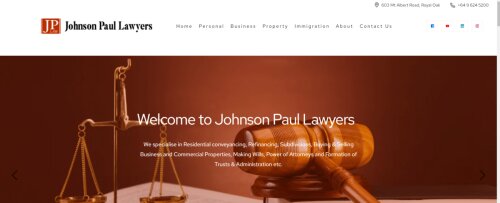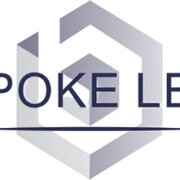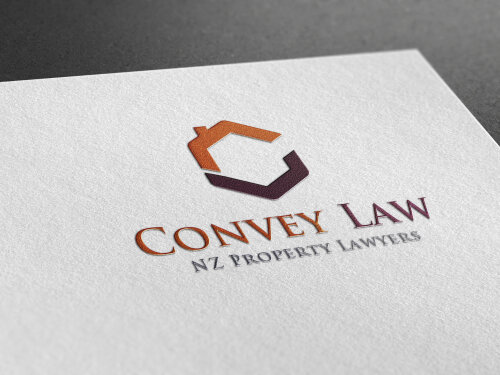Best Conveyancing Lawyers in Auckland
Share your needs with us, get contacted by law firms.
Free. Takes 2 min.
Free Guide to Hiring a Real Estate Lawyer
List of the best lawyers in Auckland, New Zealand
About Conveyancing Law in Auckland, New Zealand
Conveyancing is the legal process of transferring ownership of property from one person or entity to another. In Auckland, New Zealand, conveyancing involves several regulated steps to ensure the legal and financial interests of both buyers and sellers are protected. This process typically involves preparing and reviewing sale and purchase agreements, conducting title searches, arranging settlements, and ensuring all legal documentation is completed accurately. Whether you are purchasing your first home, selling a property, or transferring ownership, understanding conveyancing is essential to ensure a smooth and legally compliant transaction.
Why You May Need a Lawyer
While some elements of conveyancing might seem straightforward, there are many situations in which you will benefit from professional legal help:
- Buying or selling a property: Lawyers ensure all documents are legally sound and all required conditions are met before settlement.
- Transferring ownership: Changes such as gifting property or relationship property settlements require professional assistance to ensure compliance with the law.
- Reviewing contracts: Lawyers carefully review sale and purchase agreements to clarify terms, handle special conditions, and identify potential risks.
- Identifying property issues: Legal professionals can uncover problems such as unresolved encumbrances, easements, or covenants that may affect your property rights.
- Managing finances: From deposit handling to mortgage arrangements and rates payments, lawyers help manage the financial transactions involved.
- Navigating disputes: If issues arise around settlement, condition fulfillment, or unclear boundaries, a lawyer can represent your interests and resolve disputes efficiently.
Local Laws Overview
Conveyancing in Auckland is governed by a combination of national and local statutes, regulations, and case law. The most relevant laws include the Land Transfer Act 2017, which regulates how property titles are transferred and registered. The Auckland Council also enforces zoning, land use, and building regulations that can impact the conveyancing process. The Sale and Purchase Agreement, a legally binding contract, is typically prepared in accordance with the standard agreement developed by the Auckland District Law Society and the Real Estate Institute of New Zealand. Additionally, local rules about rates, LIM (Land Information Memorandum) reports, and resource consents can affect property transactions. It is essential to comply with anti-money laundering laws, especially when handling large sums of money during a property transaction.
Frequently Asked Questions
What is conveyancing, and why is it important?
Conveyancing is the legal process of transferring property ownership. It is important because it ensures all legal and financial obligations are met, protecting both the buyer and seller in a property transaction.
Do I need a lawyer for conveyancing in Auckland?
Although not legally required, using a lawyer is highly recommended. Property transactions are complex, and a lawyer’s expertise reduces the risk of costly mistakes or legal disputes.
How long does the conveyancing process take?
The process typically takes between four and six weeks, but this can vary depending on factors like finance approval, property checks, and the complexity of special conditions imposed in the contract.
What is a LIM report?
A LIM (Land Information Memorandum) report provides information held by the Auckland Council about a specific property, such as zoning, flood risks, building consents, and outstanding rates.
What should I check in a sale and purchase agreement?
It is essential to review all terms and conditions, settlement dates, chattels included, finance clauses, building inspection clauses, and any special conditions that could impact the transaction.
Who pays the conveyancing costs?
Both the buyer and the seller have their own conveyancing costs, which cover legal fees, disbursements, and registration fees. Costs can vary depending on the property and transaction complexity.
What happens on settlement day?
On settlement day, the balance of the purchase price is paid, the lawyer arranges for the property title transfer, and the buyer receives possession of the property once the transaction is complete.
Can I back out of a contract once signed?
Once a sale and purchase agreement is signed, you are legally bound unless it includes conditions that are not met, such as finance approval or a satisfactory building inspection. Your lawyer can advise on your options if issues arise.
What is an e-dealing in property conveyancing?
E-dealing refers to the electronic lodging and registration of property transactions with Land Information New Zealand (LINZ), which is now standard practice for most property transfers in Auckland.
Are there tax implications when buying or selling property?
Yes, there can be tax considerations, such as the bright-line property rule which may apply if you buy and sell residential property within a certain time frame. It is wise to seek legal and financial advice regarding tax liabilities.
Additional Resources
For further assistance and information about conveyancing in Auckland, consider contacting the following organizations and agencies:
- Land Information New Zealand (LINZ): Manages property title registrations and provides guidance on land records.
- Auckland District Law Society (ADLS): Offers standard forms and information on conveyancing practices.
- Real Estate Institute of New Zealand (REINZ): Provides industry resources and information for property buyers and sellers.
- Auckland Council: Source for LIM reports, rates, zoning, and building consents.
- New Zealand Law Society: Helps you find qualified property lawyers in Auckland.
Next Steps
If you are considering buying, selling, or transferring property in Auckland, take the following steps:
- Begin by seeking legal advice from a qualified conveyancing lawyer who is familiar with Auckland property law and processes.
- Gather all relevant documents, such as title records, identification, and any prior agreements, to help your lawyer efficiently assess your situation.
- Clarify your goals and any concerns so your lawyer can provide tailored advice and review special conditions or unique circumstances.
- Ask your lawyer to explain the process in plain language and keep you informed at every stage of the transaction.
- Ensure you understand all costs, timelines, and obligations before proceeding with any agreement or payment.
Remember that professional legal assistance is the best way to protect your interests and achieve a smooth, secure property transaction in Auckland.
Lawzana helps you find the best lawyers and law firms in Auckland through a curated and pre-screened list of qualified legal professionals. Our platform offers rankings and detailed profiles of attorneys and law firms, allowing you to compare based on practice areas, including Conveyancing, experience, and client feedback.
Each profile includes a description of the firm's areas of practice, client reviews, team members and partners, year of establishment, spoken languages, office locations, contact information, social media presence, and any published articles or resources. Most firms on our platform speak English and are experienced in both local and international legal matters.
Get a quote from top-rated law firms in Auckland, New Zealand — quickly, securely, and without unnecessary hassle.
Disclaimer:
The information provided on this page is for general informational purposes only and does not constitute legal advice. While we strive to ensure the accuracy and relevance of the content, legal information may change over time, and interpretations of the law can vary. You should always consult with a qualified legal professional for advice specific to your situation.
We disclaim all liability for actions taken or not taken based on the content of this page. If you believe any information is incorrect or outdated, please contact us, and we will review and update it where appropriate.
















